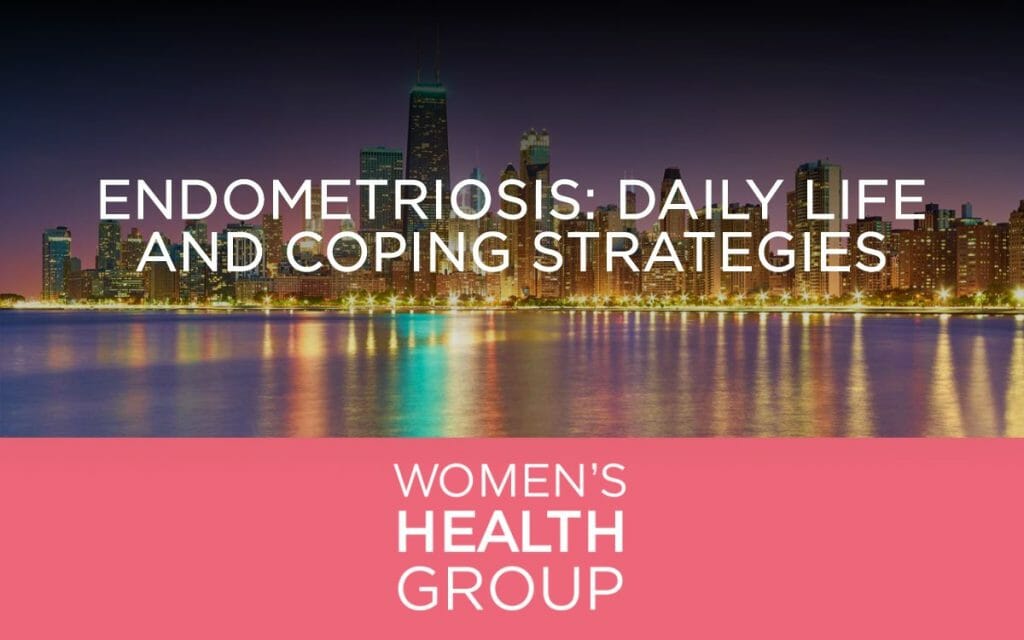Understanding Endometriosis
Endometriosis is a chronic gynecological condition that affects approximately one in ten women during their reproductive years. It occurs when tissue similar to the lining of the uterus, known as endometrium, grows outside the uterus, causing chronic pain, heavy periods, and even infertility in some cases.
As an Obstetrician-gynecologist group operating in Chicago, we see numerous cases where women struggle with daily life due to the profound impact of endometriosis. It’s not surprising that endometriosis often leads to a significant decrease in quality of life, physical productivity, and psychological well-being. It is for these women that we write this article about living with endometriosis, also termed as ‘Endometriosis Life,’ in hopes of offering beneficial ways to go about daily life, manage the symptoms, and improve their overall quality of life.
The Impact of Endometriosis on Daily Life
Firstly, it’s crucial to understand that endometriosis is much more than just a ‘bad period.’ It’s a systemic disease that can touch every aspect of a woman’s life. Women with endometriosis often experience severe menstrual cramps, chronic pelvic pain, painful intercourse, bowel and urinary symptoms, fatigue, and diminished fertility.
In addition, endometriosis can affect a woman’s mental and emotional health. It can lead to feelings of isolation, depression, anxiety, and negatively impact relationships with loved ones, making it more difficult to cope.
Coping Strategies for Endometriosis
Fortunately, there are several ways that women can manage their endometriosis symptoms and enhance their daily lives. Here are a few strategies that we, at Women’s Health Group, commonly recommend:
– Pain Management: Prescription medication, over-the-counter pain relievers, hormone therapy, and even some surgical interventions can help manage the pain associated with endometriosis.
– Diet and Exercise: A healthy diet rich in fruits, vegetables, lean proteins, and whole grains may help manage endometriosis symptoms. Regular physical exercise can also help by improving blood flow, reducing pain, and alleviating stress.
– Mental Health Support: Living with a chronic disease can take a toll on your mental health. Psychotherapy, patient support groups, and online communities can provide emotional support and practical coping strategies.
– Complementary Therapies: Techniques such as acupuncture, massage, physical therapy, and mindfulness can be beneficial in managing endometriosis symptoms.
Further research is ongoing to develop better options for women living the endometriosis life, and it’s essential to remember that what works for one person might not necessarily work for another. You can learn more about endometriosis and different coping strategies on Mayo Clinic and Women’s Health Gov websites.
Navigating Daily Life with Endometriosis
Living with endometriosis requires significant adjustments in your routine and lifestyle. Here are a few tips:
– Cut yourself some slack: It is OK to admit when you are in pain and need to rest or adjust your usual activities.
– Plan ahead: Understanding your cycle and symptom patterns can help you plan for bad days and manage your energy better.
– Communicate openly: Share your experiences with others. It can help you get support when you need it most, and also raise awareness about this condition.
Supporting Women in the Endometriosis Life
Endometriosis affects every woman differently, and each woman’s story is unique. Therefore, it is crucial that a woman living with endometriosis be treated by healthcare professionals who understand the multi-faceted nature of the disease.
We, at Women’s Health Group, Chicago, aim to provide empathetic, knowledgeable, and comprehensive care to women suffering from endometriosis. Our goal is to guide them through daily living by providing the best coping mechanisms and ensuring that they are not alone in their journey.
In conclusion, living with endometriosis is a challenge, but with the right tools, strategies, and support, women can manage their symptoms and live the endometriosis life to the fullest. Always remember — you are not alone in this journey, and there are resources and treatments available that can help improve your quality of life.




